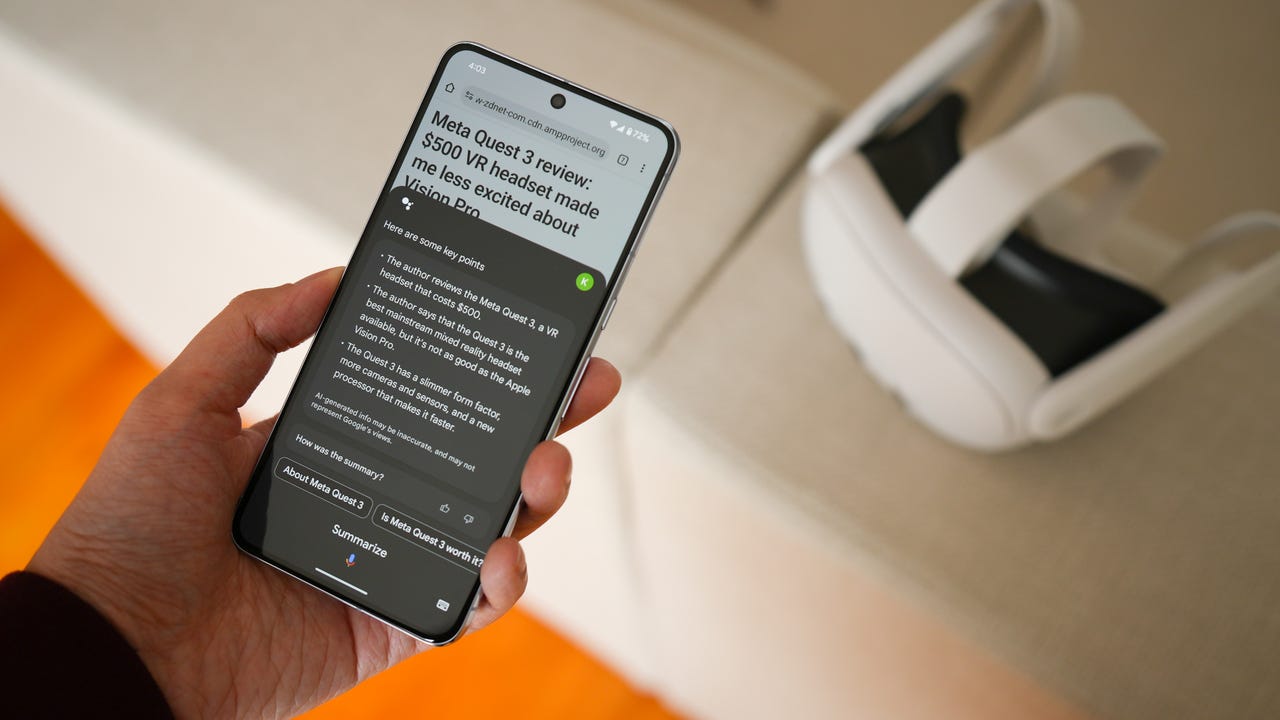Hey Google: If AI is replacing Google Assistant, I have two questions

I've been using Google's Pixel line of phones since the first one dropped years ago. But I have a confession to make: I don't use Google Assistant all that much. I can't explain exactly why I never got into the habit of using such a useful tool, but it never happened. Don't get me wrong: Every so often I do say the magic phrase, "Hey Google…" followed by a question I just don't feel like typing.
And I believe that's the crux of the issue for me. I'm a professional writer, so I prefer to type. I don't even use speech-to-text to write messages (unlike my wife, who's a pro at it).
Also: How to drastically improve your privacy on Google Bard with this one simple setting
That being said, rumors abound that Google is considering replacing the current Assistant with its Bard AI. Another rumor is that OpenAI is going to make a ChatGPT option for Google Assistant.
All of this begs a question or two.
Question 1: What about privacy?
This should be on everyone's mind. If Google were to replace Assistant with AI, my guess is that there would be an exponential rise in users. Why? Because the feature would be far more useful than its current state.
If far more people started using an AI-powered assistant, how is Google (and Android) going to handle privacy? That's a lot of questions asked and answered. On top of that, the AI is going to learn an awful lot about people. That inspires another question: What will Google do with the information it garners from its users? Will that information be stored and, if so, where and for how long?
This could wind up being a situation where users will discover they should have opted out early on because their information is not only being saved but it's also being used to further train AI.
Also: 4 ways to overcome your biggest worries about generative AI
You see, the questions keep piling on.
Although I am vocal (and adamant) about keeping AI out of artistic, journalistic, and political endeavors (and other such endeavors that require a heart and soul), I'm not against using AI where it has practical and useful applications that would help improve quality of life or how well a piece of technology functions. But when AI crosses the line of privacy, things get dicey.
Remember, a Bard or ChatGPT assistant isn't Siri or Google Assistant -- this is much, much more, and it could lead to serious breaches of privacy. If you think web browser fingerprinting can create an accurate profile of you, wait until you see what AI can do.
Question 2: Where is it all processed?
This next question is a big one and it's directly related to the first. AI takes a serious amount of computing power to do what it does; far more than what even a flagship phone can offer. With that in mind, where will those AI-powered queries be processed? Unless Google has some serious magic up its sleeve, I can't see the Pixel 9 or 10 Pro being powerful enough to handle that much CPU load. Does that mean queries will be off-loaded to the cloud, processed, and sent back?
Now, I understand that all of the current assistants use AI. However, they aren't straight-up AI. My guess is that at least some of the processing power will have to be augmented by Google's own servers. And I'm not saying that will dramatically slow down the process, but it won't be nearly as fast as it would be if it were all handled locally.
Also: Could you soon be running AI tasks right on your smartphone?
But there's another issue. If Android does have to offload some of those queries to Google's servers, that means the data will be transferred over the internet. How will Google secure this data? And will the query be used to further train the neural network (and will they require your permission to do so)?
You see, it's a big circular "What if?" at the moment and I'm not certain how comfortable I am with these questions hanging in the air.
If Google's AI-powered assistant is going to circumnavigate our privacy, then I want nothing to do with it. And, if the system resources of a phone (CPU, RAM, and internal storage) need to be seriously beefed up, will that cost be foisted onto consumers -- just so that AI can be used in place of Google Assistant?
This might all be moot. Google may have discovered a way to retain our privacy and keep all queries processed locally on the phone (and encrypted). But until the company releases a statement or documentation to state those very things, we have to assume the answer to those questions might not have the best interests of the consumer in mind.
One thing is for certain: 2024 will be a rather interesting year for phone technology.
